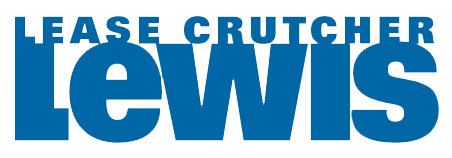Clearly a top priority for Democrats this session, legislation to address climate change performed very strongly. The increase in the number of Senate seats held by Democrats after the 2018 election allowed Democrats to push these bills few with very few or no Republican votes. In some cases, they were also able to lose the votes of one or more moderate Democrats from rural or industrial districts and still pass the legislation. This year the Democrats adopted a different strategy to climate legislation, choosing a piecemeal approach that addressed climate issues on a sector-by-sector basis rather than pursuing the larger climate taxation schemes they attempted (unsuccessfully) in previous years.
Clean Buildings
Governor Inslee’s clean buildings bill was AIA|WA’s top priority and the version sponsored by Rep. Beth Doglio (D-Olympia) succeeded after a process involving many compromises to garner Democratic votes. This included dropping a provision to allow local governments to develop voluntary residential “stretch codes” that go beyond existing code. The core pieces of the final bill include building performance standards and incentives for large commercial buildings (> 50,000 sq. ft.); natural gas conservation standards; and requirements for electric vehicle infrastructure in new buildings.
Additional AIA|WA priority bills on climate included:
HFCs: Legislation to establish deadlines for banning greenhouse gasses (largely hydrofluorocarbons, or HFCs) in refrigerants passed and will be signed by the Governor. This bill reinstates Obama-era EPA regulations designed to end the use of HFCs, although the Washington version does not go as far as California’s regulations, which passed last year.
Toxic Materials: legislation to further restrict the use of toxic materials in consumer and building products passed and will be signed by the Governor. The bill instructs the Department of Ecology to identify classes of chemicals that may be restricted at a rate of five every five years.
PACER: An AIA|WA-supported bill that would have authorized a commercial property assessed clean energy and resilience (PACER) program in Washington passed one committee but failed to move further. This bill would have established an alternative source of funding to provide loans for energy efficiency improvements which would have been repaid through assessments on the property. Under this program, loans remain with the property if sold. This bill will be an AIA|WA priority next year.
AIA|WA monitored but did not actively support the following additional climate bills:
Fossil-Free Electricity: a bill to phase out use of natural gas and coal in power generation to reach a 100 percent clean energy standard by 2045 passed and will be signed by the Governor. The legislation, the strictest clean energy law in the nation, also bans the sale of coal-powered electricity to retail electricity consumers by 2026.
Net Metering: legislation passed to require electric utilities to make conventional net metering available to eligible customer-generators. It will be signed by the Governor.
Appliance Efficiency: a bill to develop stricter appliance efficiency standards passed and will be signed into law.
HEAL Act: the Healthy Environment for All Act received a lot of publicity. It would have addressed environmental disparities that disproportionally impact low-income, Native American and minority communities. Although passed by both houses, the House and Senate ultimately could not agree on a single version, and the bill failed to pass.
Clean Fuels Program: a bill to limit greenhouse gas emissions in transportation fuels passed the House but failed to pass the Senate. It would have reduced consumption of traditional gasoline and diesel over time as alternative options like biogas and electricity become more common. This bill faced strong opposition from the oil industry and legislators who argued it would significantly raise the price of gas.
For more information, contact Kirsten Smith, manager of policy & advocacy.

























































